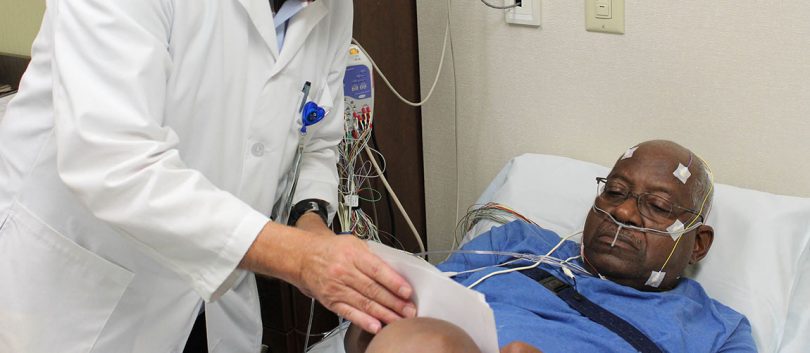Understanding how the biology of sleep helps seniors control disruptive patterns
We’ve all had sleepless nights. You know the ones. You wake for no reason with your mind in overdrive, or you find yourself sleeping fewer hours and wonder why. Sleep deprivation develops to varying degrees throughout life, mostly during times of stress or illness, but the phenomenon happens more frequently with age. In turn, we experience increased concern over conditions associated with fatigue and failing memory, as well as a desire to optimize sleep in order to lead healthy, active senior lives.
To understand why sleep deprivation increases as we grow older, it’s important to appreciate the factors that cause us to sleep. Dr. Gerard Santos of Bon Secours Sleep Disorder Centers in Richmond, Virginia, explains, “Our bodies work hard all day long, and they require rest each day. Our cells burn more calories if they are involved with a lot of activity. We call that sleep homeostasis and building it helps us sleep. The second is sleep’s rhythm. Despite how tired we are, despite whether we got a lot of sleep the night before, there’s always a time in a 24-hour period where our minds say we have to sleep. The third factor is our sleep behavior. There are certain things in our environment that tell us when to wake up and when to sleep. We can condition these to elicit a sleep response—let’s say the sun going down, or sight of the bed, or soothing music or just calm wakefulness. With conditioning, these can put us to sleep.”
Two common conditions which senior patients are referred to sleep study for are sleep apnea and memory issues; for which doctors sometimes find sleep deprivation to be a cause. Another is simple biology. Dr. Daniel Cohen with Sentara Norfolk General Hospital and Eastern Virginia Medical School in Norfolk, Virginia, elaborates, “A common pattern with elderly patients is that they develop advanced sleep phase, a condition where their internal rhythm for both falling asleep and waking is shifted to an earlier time, so they may struggle to stay awake early in the evening, and then in the morning it’s hard to sleep past 4 or 5 a.m.” In this case, natural sleep patterns are being reestablished. Gone are the days of the 6 a.m. alarm, and the body’s natural tendency is to find a rhythm conducive to its unique biology.
Dr. Cohen again, “We find that being a night owl or a morning person is a biological trait, rather than a psychological preference, that has to do with how our internal clock synchronizes with 24-hour time cues.” While some seniors may find themselves enjoying the “early bird special” at their favorite restaurant and lights out at 8, others might find it difficult to sleep until well past midnight and rise quite late in the morning, though this scenario is less common.
Seniors are often at a disadvantage when it comes to uninterrupted sleep due to the side effects of prescription medicines. Common medications that disrupt sound sleep include cardiovascular drugs, which can cause drowsiness, but also light or fragmented sleep; drugs used to treat memory disorders, which can disturb sleep patterns; cold and allergy remedies, which can both stimulate and cause sedation; and anti-depressants and anti-anxiety medications, which often cause a disruption in the REM or deep sleep cycle. According to Dr. Cohen, all of these medications can cause situations where “sleep doesn’t have the same orderly process of brain activity that it normally would, and people don’t experience the restorative properties sleep is meant to provide.”
With these biological and medical influences in place, it may seem like disrupted sleep is simply a condition of aging, but Drs. Santos and Cohen suggest a few simple parameters that can assist people who are having a difficult time getting some shut-eye.
- Provide ample natural daytime light and a dark environment when sleeping.
- After retirement, attempt to stay on a consistent wake/sleep schedule throughout the week,
and create an active daytime routine to build what Dr. Santos refers to as sleep homeostasis. - Aerobic exercise during the day may help you sleep at night, but not close to bedtime.
- Avoid caffeine or alcohol in the later part of the day, as both can deprive you of sleep.
- If you are experiencing insomnia, leave the bedroom to complete a restful activity in dim light, and then return to the bed when you are drowsy.
Just like Pavlov’s dog, we experience a conditioned response to our sleep environment; if we’re not using it for sleep, our brains won’t see it as such. Finally, listen to your body’s unique biology. “Contrary to popular belief,” says Dr. Cohen, “healthy seniors actually need about an hour less sleep than young adults, and the obsession over needing eight hours of sleep each night may actually impair sleep quality.”







